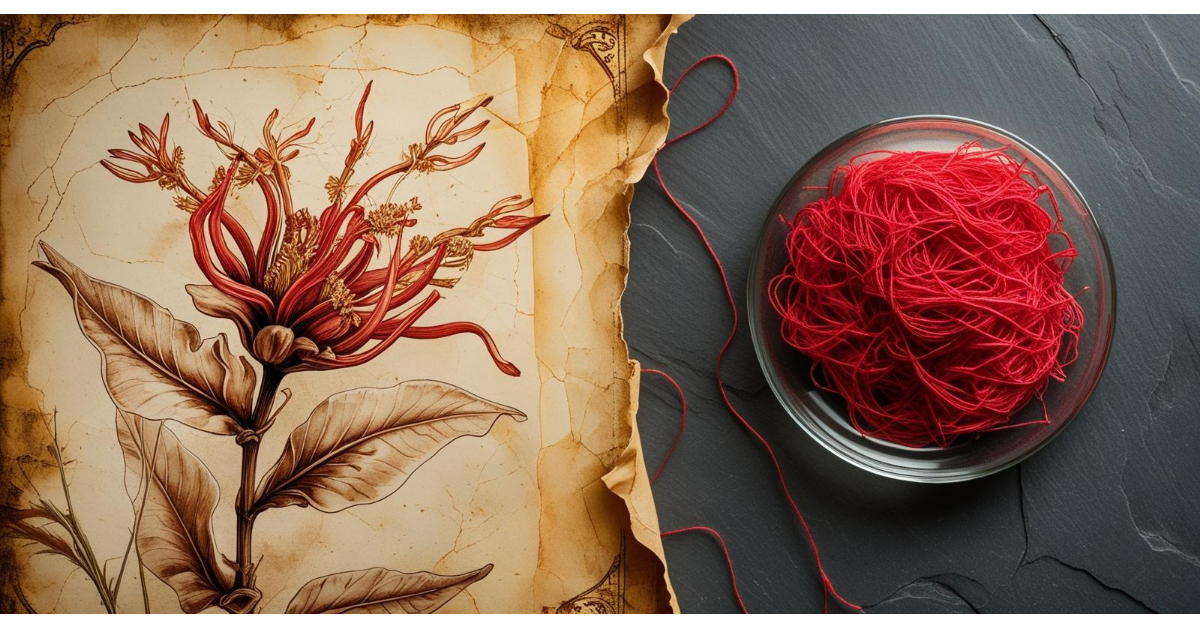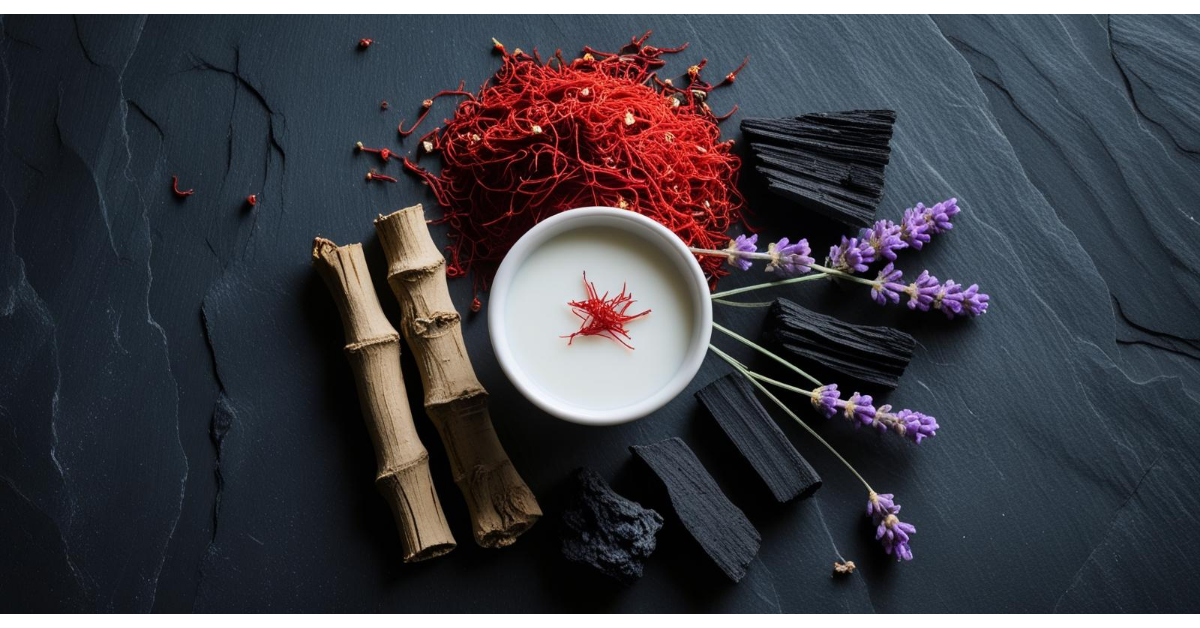
Ayurvedic Shampoo: Ancient Secrets, Himalayan Herbs & The Path to True Hair Wellness
BestIndian LuxuriesShare
The quest for lustrous, healthy hair is as ancient as civilization itself, and India, with its profound heritage of Ayurveda, has long held sophisticated secrets to achieving it. In an era where discerning consumers are increasingly seeking authentic, effective, and holistic solutions, the global gaze is turning towards the timeless wisdom encapsulated in Ayurvedic shampoos.
The interest in authentic Ayurvedic hair care is widespread, and whether individuals search for 'Ayurveda shampoo,' 'Ayurvedic shampoo,' or even regional phonetic variations like 'Ayurvedic sempu,' the underlying desire is for products that are natural, effective, and true to traditional principles. These are not mere herbal concoctions; they are formulations born from a deep understanding of nature, human physiology, and the delicate balance required for true well-being, extending from scalp to strand.

This guide aims to provide an in-depth exploration far beyond common knowledge, delving into the core principles of Ayurvedic hair care (Kesha Paricharya), the scientifically recognized potency of traditional Himalayan and Indian herbs, what truly defines an Ayurvedic shampoo, and how this ancient knowledge is meticulously translated into superior modern formulations like those from BestIndian™. We aim for this to be a reference-worthy resource, a journey into the soul of Indian hair care, a path also illuminated in our Ultimate Guide to the Best Indian Shampoo.
What Defines an "Ayurvedic Shampoo"? Beyond Just Herbal Extracts
An Ayurvedic shampoo transcends the simple definition of a "herbal shampoo." While it prominently features plant-based ingredients, its true essence lies in its formulation according to the profound philosophical and medical principles of Ayurveda, a system of medicine with millennia of documented efficacy.

At its core, Ayurveda views health holistically, where beauty, including hair health, is an outer manifestation of inner balance. An Ayurvedic shampoo, therefore, aims to:
- Balance the Doshas: According to Ayurveda, the three fundamental bio-energies or doshas—Vata (Air & Ether), Pitta (Fire & Water), and Kapha (Earth & Water)—govern all physiological and psychological processes, including hair characteristics. Hair issues are often seen as a result of an imbalance (Vikriti) in one or more of these doshas. For example, excess Vata can lead to dry, brittle, frizzy hair and hair fall; aggravated Pitta can cause scalp inflammation, premature greying (Palitya), and hair thinning; while excess Kapha might result in an oily scalp and thick, heavy hair. A true Ayurvedic shampoo is often formulated with herbs that help pacify the aggravated doshas responsible for specific hair concerns.
- Adhere to Kesha Paricharya (Ayurvedic Hair Care): This encompasses principles for maintaining healthy hair, including procedures for cleansing, nourishing, and protecting the hair and scalp, as detailed in classical texts.

- Utilize Synergistic Herbal Combinations (Samyoga): Ayurvedic pharmacology emphasizes the synergistic action of multiple herbs. Formulations often combine several botanicals whose collective effect is greater than the sum of their individual actions. The selection is based on their properties (Rasa - taste, Guna - qualities, Virya - potency, Vipaka - post-digestive effect, and Prabhava - specific action).
- Prioritize Purity and Natural Processes: Authentic Ayurvedic preparations emphasize the use of pure, naturally sourced ingredients, processed in ways that preserve their inherent qualities. This inherently aligns with the modern demand for formulations free from harsh synthetic chemicals, sulfates, and parabens. Many Ayurvedic texts like the Charaka Samhita, Sushruta Samhita, and Ashtanga Hridayam provide the foundational knowledge for these formulations.
Thus, an Ayurvedic shampoo is not just about incorporating a few popular herbs; it's about a formulation philosophy rooted in a deep, holistic understanding of health, nature, and the specific energetics of botanical ingredients.
The Ayurvedic View of Hair (Kesha): Origin, Health & Common Concerns
In Ayurveda, hair (Kesha) is considered more than just a structural appendage; its condition is a valuable diagnostic indicator of an individual's systemic health and doshic balance. Classical texts provide detailed insights into its origin, nourishment, and vulnerabilities.

- Origin and Constitution of Hair (Keshotpatti): Hair is described as being derived from the Parthiva Mahabhuta (Earth element) due to qualities like roughness and heaviness, and is considered a Pitruja Bhava, meaning its fundamental characteristics like structure and quantity can be influenced by paternal factors. More specifically, Ayurveda posits that when Asthi Dhatu (bone tissue) undergoes its metabolic transformation (Paka) by its own Agni (metabolic fire), Majja Dhatu (marrow or nervous tissue) emerges from the refined portion (Sara Bhaga), while hair of the scalp and body, along with nails, manifest as byproducts or waste products (Mala). Acharya Sharangadhar also considers scalp and body hair as an Upadhatu (secondary tissue) of Majja Dhatu. This deep physiological connection underscores why systemic health is crucial for hair vitality. Hair formation is said to begin around the sixth or seventh month of gestation.
- Nourishment of Hair (Kesha Poshana): According to Acharya Charaka, the Ahara Rasa (nutrient fluid derived from digested food) nourishes all bodily tissues, including the formation of mala like hair. Sushruta elaborates that Kesha receives its nourishment from the terminal parts of Dhamanis (channels or vessels) that are connected to the Romakoopa (hair follicles). This highlights the importance of good digestion, nutrient assimilation, and healthy circulation for hair health.
- Hair Color (Kesha Varna): Ayurveda attributes hair coloration primarily to Teja Mahabhuta (Fire element). Bhrajaka Pitta, a subtype of Pitta dosha responsible for skin luster and coloration, combines with Prithvi (Earth) and Vayu (Air) Mahabhutas to produce black hair, the adored color in Ayurvedic tradition. Hair color also varies based on an individual's Prakriti.

-
Common Ayurvedic Hair Concerns:
- Khalitya (Hair Fall/Alopecia): This is often attributed to the vitiation of Pitta dosha, often in conjunction with Vata dosha, which "scorches" the hair root. Subsequently, vitiated Rakta (blood) and Kapha dosha can obstruct the hair follicles, preventing regrowth. Lifestyle factors, diet, and stress are significant contributors. This is a key area where an effective anti-hair fall shampoo plays a vital role.
- Palitya (Premature Greying): Primarily linked to an increase or aggravation of Pitta dosha, sometimes Ushna Guna (heat quality) affecting the hair follicles.
- Darunaka (Dandruff): Described as being caused by an imbalance of Kapha and Vata doshas, leading to dryness, itching, and flaking of the scalp. Pitta and Rakta involvement can also occur. Addressing this is crucial for overall scalp harmony.

Understanding these foundational Ayurvedic concepts allows for a more nuanced appreciation of how traditional Indian shampoos are formulated to address not just symptoms, but the underlying energetic and physiological balances critical for sustained hair health.
Ayurveda's Botanical Pharmacy: Star Herbs in the Best Ayurvedic Shampoos
The true therapeutic power of Ayurvedic shampoos lies in their meticulously selected botanical ingredients. Ayurveda’s vast materia medica (Dravyaguna) details numerous herbs renowned for their beneficial effects on hair (Keshya dravyas). These plants are rich in diverse phytochemicals that offer antioxidant, antimicrobial, anti-inflammatory, cleansing, and conditioning properties. The best Ayurvedic shampoos will feature potent extracts of these star herbs, often in synergistic combinations.

-
Amla (Emblica officinalis / Indian Gooseberry – Amalaki): Universally acclaimed in Ayurveda as a premier Rasayana (rejuvenative tonic), Amla is a cornerstone of traditional hair care. It is exceptionally rich in Vitamin C (a potent antioxidant), ellagitannins (like Emblicanin A & B), flavonoids, and other polyphenols. These compounds help combat oxidative stress at the follicular level, which can contribute to premature hair aging and weakened roots. Ayurvedic texts and supportive modern research suggest Amla strengthens hair roots, promotes hair growth by nourishing follicles, helps maintain natural hair color thereby preventing premature greying (Palitya), and acts as a natural conditioner, imparting shine and softness to the hair. Its slightly acidic nature also helps in maintaining scalp health.

-
Reetha (Sapindus mukorossi / Soapnut – Arishtaka): For centuries, Reetha has been revered in India as a natural hair cleanser. The fruit pulp contains a high concentration of saponins, which are natural surfactants. These saponins create a gentle, mild lather that effectively cleanses the scalp and hair of excess sebum, dirt, and product buildup without the harsh stripping effects of synthetic sulfates. Ayurveda values Reetha for its Shodhana (cleansing) properties, its ability to balance all three doshas (especially Kapha due to its light, drying qualities post-cleansing, yet generally considered tridoshic in balanced formulations), and its antimicrobial action which helps in maintaining scalp hygiene and managing conditions like dandruff. It also leaves hair feeling soft and looking lustrous. For more on natural solutions for dandruff control, see our guide.
-
Aloe Vera (Aloe barbadensis miller / Ghrita Kumari or Kumari): Known as the "plant of immortality" in ancient cultures, Aloe Vera is a celebrated Ayurvedic herb for both skin and hair. Its succulent leaves contain a gel rich in over 75 active constituents, including vitamins (A, C, E, B12), minerals, enzymes (like bradykinase, which aids in reducing inflammation), amino acids, lignins, saponins, and polysaccharides (notably acemannan). In hair care, Aloe Vera is prized for its profound moisturizing, soothing, and healing properties. It helps to hydrate a dry scalp, calm irritation and itchiness (Pitta-pacifying), repair skin cells on the scalp due to its proteolytic enzymes, and create an optimal microenvironment for healthy hair follicles. Some Ayurvedic texts also suggest its role in promoting hair thickness and strength.

While these are central, Ayurveda also recognizes other potent Keshya herbs like Shikakai (Acacia concinna) for its cleansing and pH-balancing properties, Bhringraj (Eclipta prostrata) often called the "king of herbs for hair" for its remarkable effects on hair growth and preventing hair loss, and Brahmi (Bacopa monnieri) for its ability to nourish hair roots and act as a nervine tonic, potentially reducing stress-related hair fall. The best Ayurvedic shampoos carefully select and combine these botanicals to achieve specific therapeutic outcomes.
The "Himalayan Purity" Promise: Why Sourcing & Environment Matter in Ayurveda
In Ayurvedic pharmacology (Dravyaguna), the quality and efficacy of a medicinal herb are not solely determined by its species but are profoundly influenced by its Desha (region or habitat), Kala (time of collection), and the methods of collection and processing. The concept of "Himalayan Purity" often invoked by premium Ayurvedic brands taps into this ancient understanding.

The Himalayan mountain range, with its diverse altitudes, unique microclimates, and relatively untouched ecosystems, has long been revered as a sanctuary for some of the most potent and pure medicinal plants in the Ayurvedic materia medica. Herbs sourced from these pristine environments are believed to possess enhanced Veerya (active potency) due to several factors:
- Optimal Growing Conditions: The clean air, unpolluted soil, glacier-fed water, and specific UV radiation exposure at high altitudes can lead to a higher concentration of beneficial phytochemicals and secondary metabolites in plants.
- Reduced Contamination: Unlike herbs grown in plains or areas with intensive agriculture, Himalayan botanicals are less likely to be contaminated with synthetic pesticides, herbicides, heavy metals, or industrial pollutants, ensuring a purer end product. This is crucial as plants can absorb these toxins, which may then be passed into cosmetic formulations. This aligns perfectly with the modern demand for truly natural and organic shampoos.
- Traditional Ecological Wisdom: Indigenous communities in Himalayan regions often possess generations of knowledge regarding sustainable harvesting practices that ensure the continued availability of medicinal plants and preserve their potency.
BestIndian™ embraces this principle of sourcing and environmental integrity. As highlighted in our brand's core philosophy, BestIndian™ beauty care and wellness luxuries are manufactured in a state-of-the-art, non-polluting facility located in Dehradun, nestled in the pristine foothills of the majestic Himalayan range.

We partner with trusted local farmers who cultivate many of our herbs organically, an initiative that not only ensures the purity of our ingredients but also uplifts the regional economy and inspires broader adoption of organic farming through our 'Grow Organic' campaign.
Furthermore, our commitment to freshness is paramount; herbs are harvested in the early morning and transported with utmost care to our manufacturing facility, ensuring they are processed within three hours. This protocol is designed to capture the peak potency of these botanicals, making the experience "almost like using ingredients from your own kitchen garden." This dedication to Himalayan sourcing and freshness is integral to delivering the superior efficacy expected from a luxury Ayurvedic shampoo.

Choosing Your Ayurvedic Shampoo: An Informed Decision
Navigating the world of Ayurvedic shampoos requires a discerning eye, as not all products marketed as "Ayurvedic" or "herbal" adhere to the same standards of authenticity, purity, or efficacy. Making an informed decision involves looking beyond marketing claims and understanding a few key indicators of a high-quality Ayurvedic formulation.
Firstly, examine the ingredient list (INCI) closely. A truly Ayurvedic-inspired shampoo will prominently feature recognizable botanical names (e.g., Emblica officinalis for Amla, Sapindus mukorossi for Reetha, Aloe barbadensis for Aloe Vera). Be wary of products that list only a few herbal extracts far down the list, preceded by a long list of synthetic chemicals. The concentration and quality of herbal extracts are paramount. This aligns with the need for full ingredient transparency, allowing you to assess the formulation's integrity.

Secondly, consider the formulation principles. Authentic Ayurvedic shampoos often strive to be free from harsh chemicals like sulfates (SLS/SLES), parabens, silicones, artificial colors, and synthetic fragrances, as these can counteract the beneficial effects of the herbs and potentially irritate the scalp or damage hair in the long run. Look for products that utilize gentle, plant-derived cleansers and natural conditioning agents, aligning with Ayurveda's emphasis on non-harming (Ahimsa) and natural balance. The benefits of a sulfate-free approach for gentle cleansing are particularly relevant here.
Thirdly, understanding your hair and scalp type from an Ayurvedic perspective (your Prakriti or current Vikriti - imbalance) can be beneficial, though many high-quality Ayurvedic shampoos are formulated to be balancing for most hair types. For instance, if your hair is predominantly dry and frizzy (Vata characteristics), you'd look for more nourishing and hydrating ingredients. If you have an oily scalp with inflammation (Pitta characteristics), cooling and purifying herbs would be more suitable.

Finally, look for certifications and brand ethos. Certifications like COSMOS Organic provide an independent verification of the product's organic integrity and purity of ingredients. A brand's commitment to ethical sourcing, sustainable practices, and transparent manufacturing also speaks volumes about its dedication to true Ayurvedic principles and quality.
BestIndian™ Ultimate Shampoo: Ayurvedic Wisdom & Purity for Your Hair
The BestIndian™ Ultimate Anti-Hair Fall Conditioning Shampoo is meticulously crafted at the confluence of profound Ayurvedic wisdom, the purity of Himalayan-sourced botanicals, and the precision of modern scientific formulation, designed to offer an unparalleled hair care experience.

-
Embodiment of Ayurvedic Principles: At its heart, BestIndian™ Shampoo features a potent trio of Ayurvedic stalwarts:
- Amla (Emblica officinalis): Leveraged for its renowned Keshya (hair-benefiting) properties, including root strengthening, growth promotion, and antioxidant protection.
- Reetha (Sapindus mukorossi): Utilized for its natural saponins that provide effective yet exceptionally gentle cleansing, respecting the scalp's delicate balance, a core Ayurvedic tenet.
- COSMOS Certified Organic Aloe Vera (Aloe barbadensis): Chosen for its profound soothing, hydrating, and scalp-healing capabilities, aligning with the Ayurvedic goal of maintaining a healthy foundation for hair growth.
-
Commitment to Purity & Safety: True to the Ayurvedic ideal of using wholesome, non-harming ingredients, BestIndian™ Shampoo is sulfate-free, paraben-free, and free from silicones and other harsh synthetic chemicals. Its COSMOS Organic certification is a testament to its adherence to the highest global standards for natural and organic purity, ensuring that the botanicals are of premium quality and the formulation is genuinely benign. This is central to our philosophy of Natural & Organic Luxury.

-
Himalayan Connection & Freshness: Manufactured in a state-of-the-art facility in the pristine Himalayan foothills, using organically grown herbs often processed within hours of harvesting, BestIndian™ ensures maximum potency and freshness of its botanical actives, reflecting the Ayurvedic importance of dravya guna (inherent qualities of the substance).
-
Holistic Hair Wellness: As an "all-in-1 herbal hair rejuvenator and conditioning shampoo," it addresses multiple concerns holistically – from combating hair fall and breakage by nourishing follicles and strengthening strands, to maintaining scalp health and imparting natural shine and manageability. This comprehensive action aligns with Ayurveda's approach to treating the root cause and promoting overall balance rather than just symptomatic relief.

BestIndian™ Ultimate Shampoo is more than just a cleansing product; it's an invitation to experience the profound efficacy of Ayurvedic hair care, elevated by modern science and an unwavering commitment to purity and luxury.
Beyond Shampoo: Complementary Ayurvedic Rituals for Hair Vitality
While a high-quality Ayurvedic shampoo like BestIndian™ forms the cornerstone of your hair care, Ayurveda offers a wealth of complementary practices (Dinacharya - daily routine, and Ritucharya - seasonal routine) that can further enhance hair health and vitality:

- Shiro Abhyanga (Ayurvedic Head Massage): Regularly massaging the scalp and hair with warm, herb-infused oils (appropriate for your dosha) is highly recommended in Ayurveda. This practice stimulates circulation to the follicles, deeply nourishes the scalp, strengthens hair roots, calms the nervous system (reducing Vata aggravation), and promotes sound sleep, all of which contribute to healthier hair growth. Oils like Bhringraj, Brahmi, Amla, or coconut oil are commonly used. Learn more about the rich tradition and science behind hair oiling in our dedicated article.
- Nasya Karma (Nasal Administration of Medicated Oils): Ayurveda considers the nose as the gateway to the head (Shiro Dwara). Administering a few drops of specific medicated oils (like Anu Taila) into the nasal passages is believed to clear the channels of the head, nourish the sensory organs, and prevent premature greying, hair fall, and other head-related ailments. This practice should ideally be learned from an Ayurvedic practitioner.
- Ahara (Diet): Ayurveda strongly emphasizes the role of diet in hair health. Consuming a balanced diet rich in fresh fruits, vegetables, whole grains, healthy fats, and adequate protein provides the necessary building blocks for strong hair. Specific foods and herbs that support asthi dhatu (bone tissue, linked to hair) are also recommended. Avoiding excessively processed, spicy, or sour foods (which can aggravate Pitta) may be advised for certain hair conditions.
- Vihara (Lifestyle): Managing stress through practices like yoga, pranayama (breathing exercises), and meditation is crucial, as stress is a major contributor to dosha imbalance and hair fall. Ensuring adequate sleep and following a regular daily routine also supports overall health and, consequently, hair vitality.
- Gentle Hair Practices: Ayurveda advises against harsh treatments, excessive heat, and aggressive combing, advocating for gentle handling of hair to prevent mechanical damage.

Integrating these rituals into your lifestyle, alongside the use of an authentic Ayurvedic shampoo, can create a powerful synergy for achieving and maintaining the lustrous, healthy hair envisioned in Ayurvedic texts.
Conclusion: The Enduring Wisdom of Ayurvedic Hair Care
In a world increasingly seeking authentic, sustainable, and effective wellness solutions, the ancient wisdom of Ayurveda offers a profound and relevant path to achieving naturally beautiful and healthy hair. Its holistic approach, which considers the intricate balance of body, mind, and environment, combined with its rich knowledge of botanical medicine, provides a comprehensive framework for hair care that transcends superficial treatments.

Choosing an Ayurvedic shampoo means embracing a philosophy that prioritizes purity of ingredients, gentle yet potent action, and the overall well-being of your hair and scalp. When such formulations are further enhanced by the pristine sourcing of ingredients, like those from the Himalayas, and validated by modern scientific understanding of their efficacy, the result is a hair care experience that is both deeply traditional and exceptionally advanced. This commitment to natural and organic excellence is what sets the best Ayurvedic shampoos apart.

By understanding and incorporating the principles of Ayurvedic hair care into your routine, you are investing in the long-term health, strength, and vitality of your hair, allowing its natural radiance to shine through.
We invite you to experience this profound synergy of ancient tradition and modern purity with BestIndian™ Ultimate Anti-Hair Fall Shampoo, your partner in authentic Ayurvedic hair wellness.







